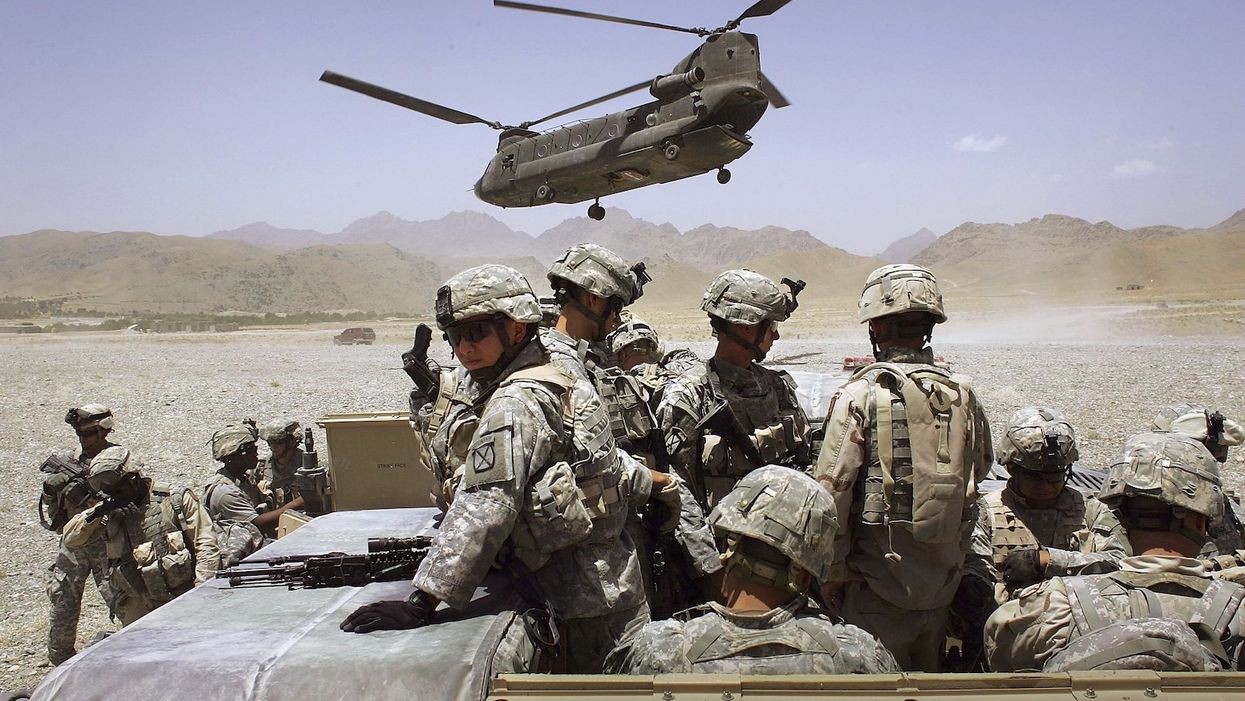
John Moore/Getty Images

'There is an odor of mendacity throughout the Afghanistan issue'
U.S. officials in Afghanistan are almost incentivized to lie about how things are going on the ground, a government watchdog for Afghanistan reconstruction told lawmakers Wednesday at a House hearing.
"The problem is there is a disincentive, really, to tell the truth," Special Inspector General for Afghanistan Reconstruction John Sopko explained in front of the House Foreign Affairs Committee.
"We have created an incentive to almost require for people to lie," Sopko explained of Afghanistan reconstruction efforts. " I don't want to sound like something from Burl Ives in 'Cat on a Hot Tin Roof,' but there is an odor of mendacity throughout the Afghanistan issue."
Sopko's answer was in response to a question about information in The Washington Post's publication of the "Afghanistan Papers" last month, which described the lengths to which U.S. officials have overplayed America's progress in the country during the past two decades. That bombshell report was based on a long list of government documents that were created from a "Lessons Learned" project conducted by Sopko's agency, which he said at the hearing were prompted by a disconnect between what he saw in Afghanistan and what he heard from agencies back in Washington.
The inspector general went on to explain that the incentive to misrepresent the situation on the ground comes from the "bottom up" because officials are given "short time frames" from six months to one year in order to show successful results.
"That gets reported up the chain and before you know it, the president is talking about a success that doesn't exist," Sopko said.
During the hearing, Sopko also told members that government officials should have done a better job up to this point of taking inventory of which Afghan reconstruction programs were working and which ones weren't. As an example, he pointed to Afghanistan's military and police forces, which he described as "a hopeless nightmare and a disaster."
"Part of it is because we rotate units through who aren't trained to do the work and they're gone in six to nine months," Sopko explained. "I don't blame the military, but you can't bring in a Blackhawk pilot to train an afghan policeman to do police work."
In his prepared testimony, Sopko described the problems with training Afghan police forces in greater detail and points out that neither the military nor the State Department were fully up to the task:
State lacked the in-house expertise and was unable to safely operate in insecure environments like Afghanistan; the U.S. military could operate in an insecure environment, but had limited expertise in training civilian police forces. Our research found instances where Black Hawk helicopter pilots were assigned to train police, while other soldiers turned to TV shows such as "NCIS" and "COPS" as sources for police training program curricula.
Another big problem in Afghanistan that Sopko described is that a lot of important information doesn't make it back to people who need it to make prudent policy decisions.
"A lot of the facts that you need, you're not being given; they're over-classified, they're not being collected, or they're just ignored," Sopko lamented during an exchange with committee ranking member Michael McCaul (R-Texas).
"And when we talk about mendacity, when we talk about lying, it's not just lying about a particular program, it's lying by omissions," Sopko continued. "Turns out that everything that's bad news has been classified over the last few years."
IG John Sopko, who heads the agency that compiled the info reported in The Afghanistan Papers, tells Congress: "A… https://t.co/7VAP2eficO— Nate Madden (@Nate Madden) 1579104357.0